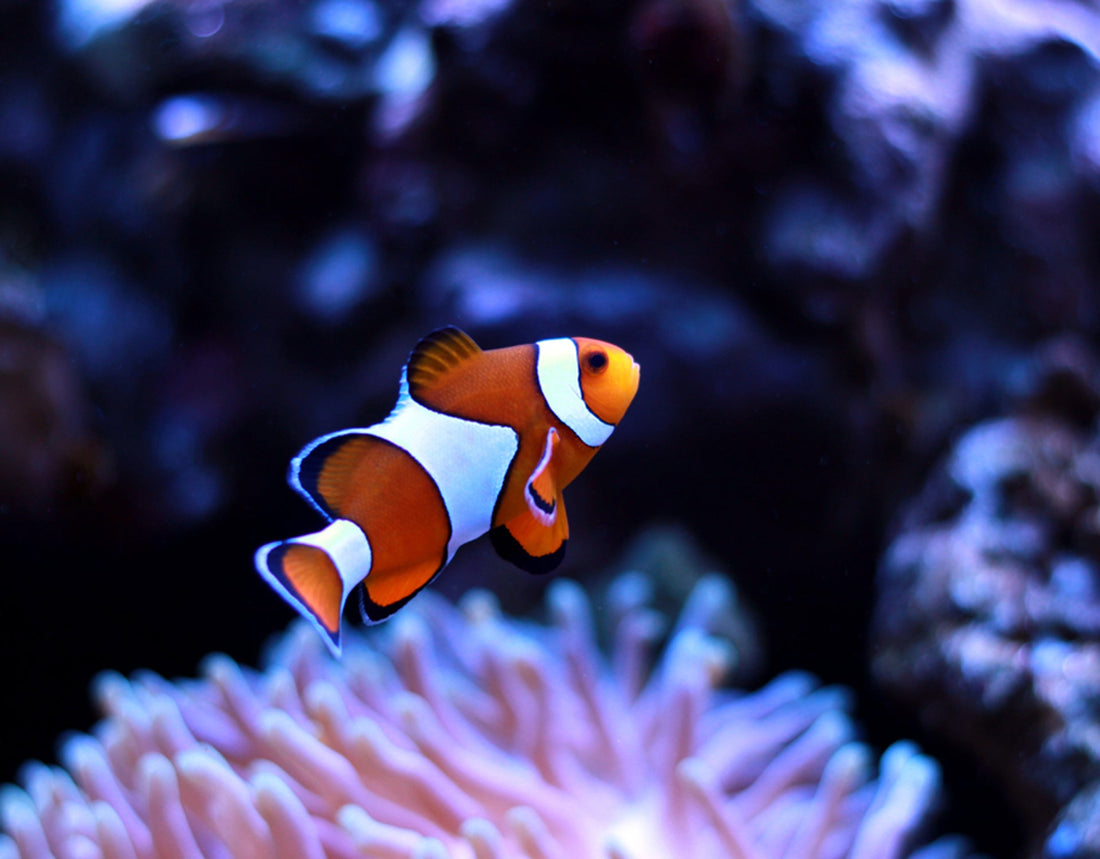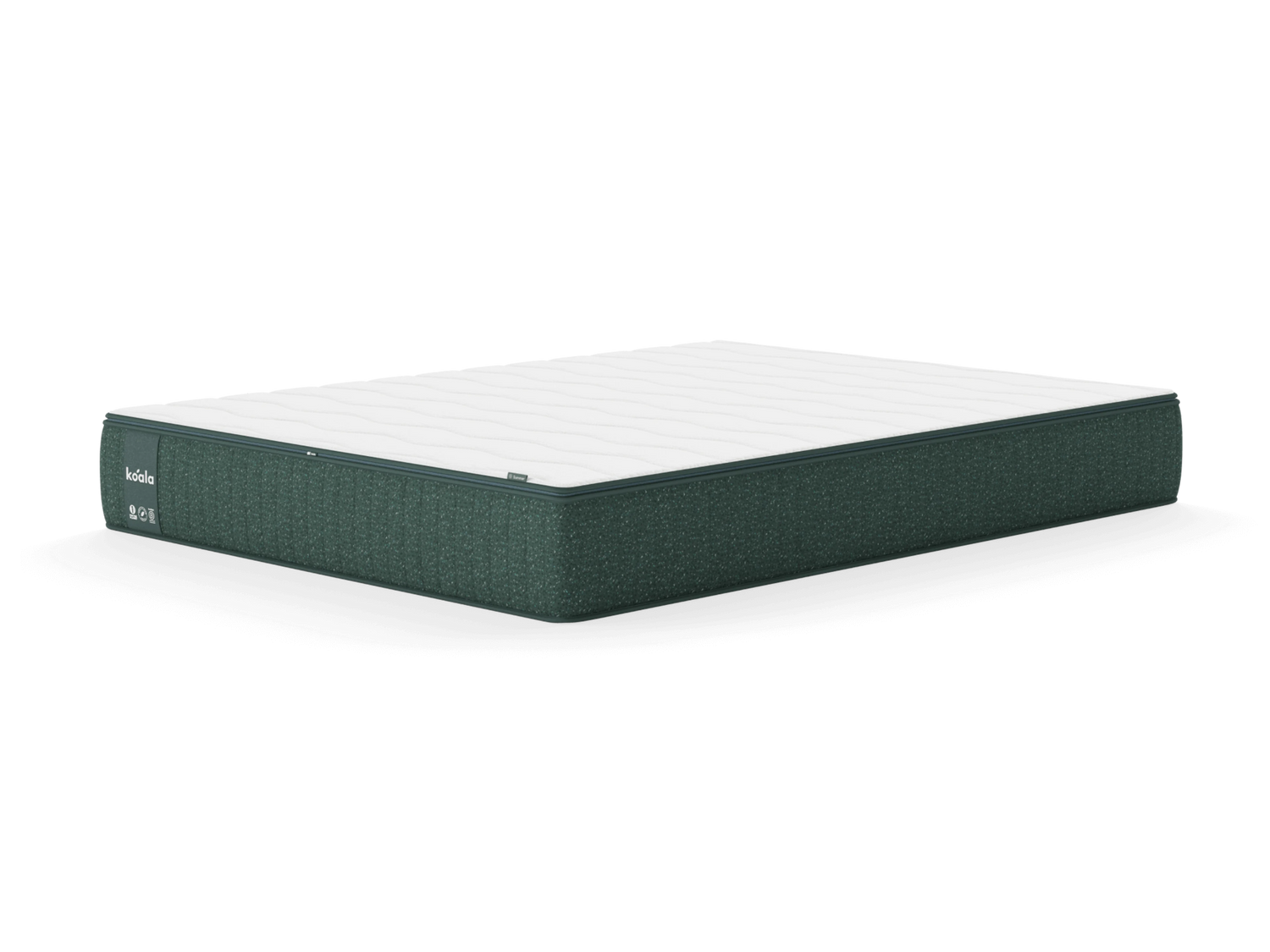
Do fish sleep? We discover the answer and more
Share
Who says a good night’s sleep is just for us humans? With more than 70% of the planet’s surface covered in water, we reckon there must be some sleeping going on down there too! If you’ve ever asked yourself, ‘Do fish sleep?’ or ‘How do whales sleep?’, and if you’ve ever found yourself wondering why sharks don’t sink to the bottom of the ocean while they’re catching their ZZZs, this article is for you.
Sea animals and sleep
Join us as we take a deep dive to discover the sleeping habits of some of our favourite underwater creatures.
Do fish sleep?
Fish may not have a cozy bed or snuggly blankets, but they’ve sure mastered the art of sleeping. These guys don’t need much shut-eye, just a quick power nap here and there to recharge. And the best part? Unlike humans, who need beds and cute bedroom accessories, fish can sleep anywhere, anytime and in any position. The thing is, fish don’t have eyelids. This means they can’t close their eyes to signal that they’re napping. Instead, they slow their movements, drift to the bottom of the ocean and remain still. Some species of fish will even tuck themselves into a cozy little crevice or hide under a rock to snooze, kinda like us pulling down the blackout blinds.
Do sharks sleep?
Always on the lookout, sharks keep one eye open, even when they’re sleeping. Well, technically, they’re not sleep-sleeping. Instead, they enter a state of ‘resting’ where their movements slow down, and they become more sluggish. But here’s the catch (pun maybe intended): sharks still need to keep swimming to circulate water over their gills so they can breathe. So, instead of sleeping as humans do, some species of sharks will just swim slowly and rest near the ocean floor. And while some sharks sleep for short periods, others can snooze for longer stretches.
Do dolphins sleep?
Dolphins are the ultimate sleep experts. These clever creatures will swim slowly and rest one half of their brain at a time while the other half stays alert to continue swimming and breathing. This is called ‘unihemispheric slow-wave sleep’, where though they look like they’re leisurely swimming around, they’re actually getting some much-needed shut-eye. One thing’s for sure — with all the jumping and racing they do, these guys really need their batteries recharged at the end of each day.
Do whales sleep?
These ocean giants have got the sleep game on lock. They tend to sleep near the water’s surface to keep breathing even while sleeping. Like dolphins, these floating powerhouses also nap with half of their brains still awake so they’re always ready to move if danger comes their way. It also means they never have to stop their migration or search for food. We’re not worthy of their multitasking!
Do goldfish sleep?
While it might look like your pet goldfish are lazily hanging around inside their tank all day, they might actually be getting a pretty decent kip. Fish prefer dark and quiet spots to sleep in, so you’ll likely find them snoozing at the bottom of the tank. You’ll know they’re still alive because their gills will continue to move to get oxygen, even when sleeping.
Do seahorses sleep?
Seahorses have to be one of the ocean’s most curious creatures. And given their miniature size, you might have thought they could float around for 24 hours of the day, even during their sleep. But it’s actually the opposite. These cute ocean-bed critters have to hold on tight while they sleep. They can’t swim and nod off at the same time, so they hold on to seaweed, coral or other objects to stay put. They’re also pretty deep sleepers. After tucking their heads under their tails and closing their eyes, they get right onto dreaming. If only sleep were that easy for us too.
 Whales sleep near the water’s surface so they can still breathe while they nap
Whales sleep near the water’s surface so they can still breathe while they napKoala-ty sleep
Let’s face it — everyone loves a good nap. But no one can snooze quite like our cuddly friend the koala. In fact, our namesake is well known for being a big sleeper, sleeping up to 20 hours a day. Yep, you heard that right. 20 hours! These little marsupials get their feed from eucalyptus leaves, which, being toxic, take a lot of effort to digest. This means the little beauties need more sleep than most other animals to conserve energy. Sadly, these tree-hugging sleep machines are in trouble. In February 2022, the status of the koala was changed from ‘vulnerable’ to ‘endangered’, with numbers going from 8 million to less than 100,000 over the past 200 years. Changes to their habitats — thanks to infrastructure, farming and other human activities — are almost entirely to blame. That’s why we continue to work with organisations like WWF Australia to do our bit to help protect the koalas and other endangered animals. Koalas may be the kings of napping, but they’re not the only creatures who love a good doze. Did you know that horses can sleep standing up? They can lock the joints in their legs so that they can relax and nap without worrying about falling over. There are insects and spiders with fun sleep habits too, like the queen fire ant that can sleep for nine hours a day or the snail that can sleep for three years. Three years of non-stop slumber? Sign us up.
All about Koala (the company, not the animal)
With all this chat about sleep, let’s take a look at Koala (this time with a capital K). At Koala, while we love designing and making mattresses and homewares that you can drool over, we know that we’re so much more than that. We’ve made it our mission to bring you products that you’ll love, products that are sustainable in a way that gives back to the planet and the animals we share it with. And we don’t take this responsibility lightly. We’re the only Australian mattress and furniture retailer that supports 1% For The Planet. This means we give the equivalent of 1% of our annual gross sales to environmental organisations and charities that support the planet, its people and animals. We’re also proud to be B-Corp certified, meaning we have the highest standards when it comes to the environment and social responsibility.
Goodnight, sleepyhead
For those of you on dry land, settle in for the night with the cosiest bedding around. Check out our range of soft sheets, cosy bed linens, divine duvets and comfy mattresses to transform your bedroom into the ultimate snooze spot. First time buying a Koala mattress? Take our mattress quiz to find your perfect match.



